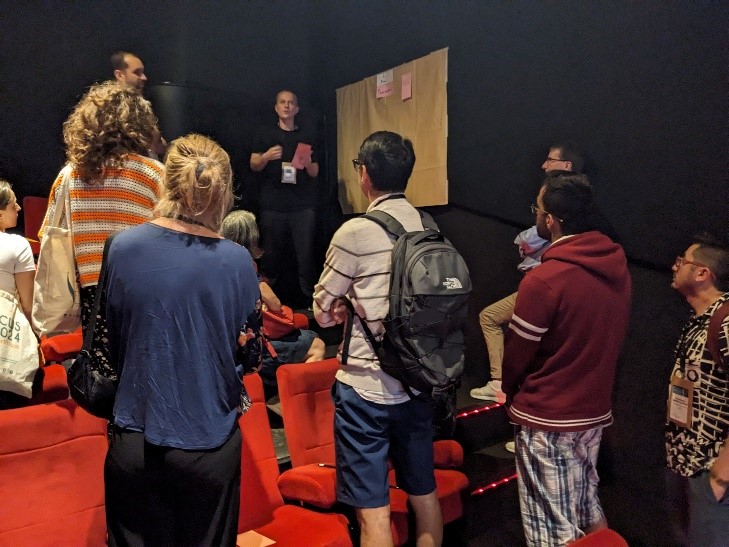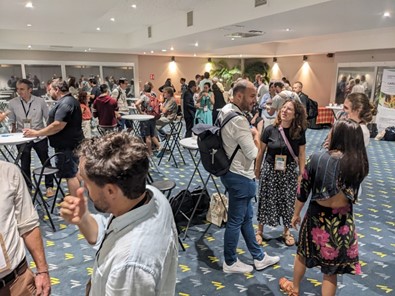Transitioning from traditional methods can be difficult, particularly when roles and responsibilities are spread across multiple actors and institutions. This is especially evident in urban water runoff management, where various entities — ranging from government bodies to the private sector and civil society — are involved in water-related urban planning. To navigate this complexity, the WATERUN project integrates a co-creation approach, encouraging key stakeholders to work alongside the developers of WATERUN solutions to enhance urban water management. Furthermore, WATERUN promotes knowledge exchange between EU and non-EU countries to address common challenges associated with urban water runoff.

Tapping into expert knowledge with co-creative methods
The 18th International Conference on Wetland Systems for Water Pollution Control which took place in Fort-de-France, Martinique from November 25th to 29th, 2024 and was attended by 162 participants from 50 countries formed an ideal setting for international experts to join the conversation on the WATERUN approach to urban runoff management. Over 25 participants gathered for the WATERUN Co-Creation session, held in the unconventional setting of the Cinema Madiana movie theater.
The session featured a series of WATERUN presentations from leading experts in the field of urban water management. Jan Friesen from the Helmholtz Centre for Environmental Research (UFZ) in Germany presented on water-sensitive infrastructure planning approaches, exploring decentralization and technological gradients. Emil Jespersen from Aarhus University (AU) in Denmark shared his team’s findings on pollutant removal in bioswales, offering valuable insights into nature-based solutions. Daneish Despot’s presentation, also from UFZ, introduced a simplified block-based hydraulic modelling approach for nature-based solutions in urban runoff management. The final presentation, delivered by Università Politecnica delle Marche (UNIVPM) in Italy, discussed a decision support system for stormwater reuse, based on a risk assessment developed within the WATERUN project. These diverse and in-depth sessions provided participants with a comprehensive overview of current advancements in the WATERUN approach to sustainable urban water management.
The session provided also a hands-on experience, illustrating how co-creation can be applied in the context of the Horizon Europe framework, specifically within the WATERUN project. Users were invited to respond to guiding questions formulated by the WATERUN innovators, engaging in focused discussions on the development of key aspects of the WATERUN Innovations. This format was designed to encourage diverse perspectives and further enhance the development of WATERUN innovations. The feedback and insights collected during the session will play a crucial role in continuing to strengthen the WATERUN innovations and ensuring their long-term impact.
The event was jointly organized by the WATERUN and CARDIMED consortia, who also invited attendees to join a social gathering and networking event following the two parallel sessions. This informal setting provided an excellent opportunity for participants to further exchange ideas, foster new connections, and explore potential collaborations across different EU Projects.

Find out more on: https://www.waterun.eu/, https://www.cardimed-project.eu/
Authors: Simon Joncourt, seecon gmbh, simon.joncourt@seecon.ch